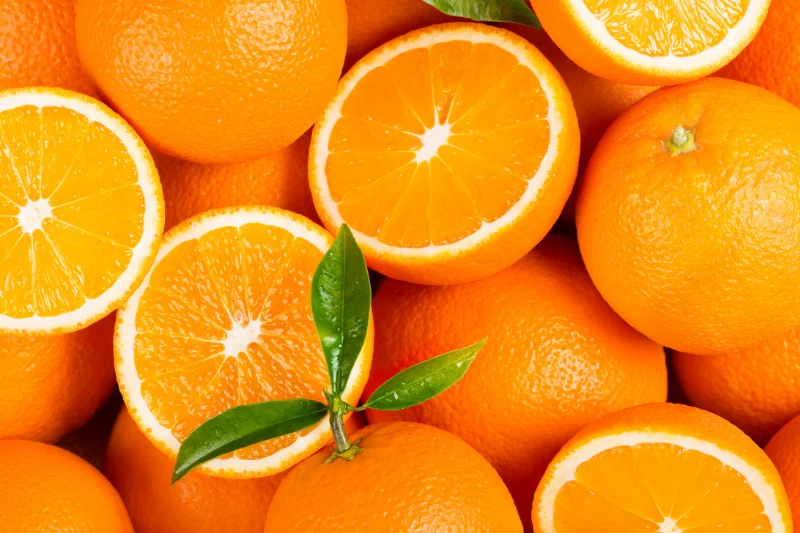Round, fruity, delicious: the orange is the most widely grown citrus fruit in the world. But it’s not just the taste that’s convincing. With their valuable ingredients, oranges are also extremely healthy.
Why oranges are so healthy – the reasons
Oranges originally came from China. Their second name gives it away: because orange means “apple from China”. In the Middle Kingdom, these healthy citrus fruits have been around for more than 3,000 years. Today, however, Brazil and the U.S. are the biggest orange producers, supplying fans around the world with their favorite fruit. And they rave not only about the sweet taste of the exotic fruit but also about its valuable ingredients. It is well known that oranges are real vitamin C bombs. But the fruit contains even more health-promoting substances that can prevent numerous diseases.
There is hardly anything more natural in our diet than freshly squeezed juice. For your daily dose of vitamins, directly from the fruit, there is, therefore, the orange or citrus press from RIG-TIG by Stelton. The simple and stylish fruit press explains its handling by itself. Simply take a halved orange, press on the press, and turn, and you have your own fruit juice. The special feature of this kitchen gadget is the cup, which serves as a collection container and thus always provides you with the ideal portion for a glass. As natural as the fruit for your thirst, this kitchen accessory is also made without harmful substances. So that, of course, remains natural. So enjoy your morning with freshly squeezed orange juice and let the day start healthy.
The nutritional values of oranges
Here you will find an overview of the most important nutritional values of oranges:
Nutritional values of oranges per 100 grams (raw)
| Calories | 47 kcal |
| protein | 1g |
| Fat | 0.2g |
| carbohydrates | 8.25g |
| fiber | 2.2g |
How many calories does an orange have?
A small orange of about 130 grams has 61 calories, an orange of 100 grams has 47 calories and a large orange of 250 grams has 118 calories.
No 1. Oranges support the immune system
Oranges contain so-called polyphenols. These secondary plant compounds have an anti-inflammatory and antioxidant effect (i.e. they catch free radicals that otherwise damage cells). They also strengthen the immune system, so that viruses and bacteria can be better fought off by the organism.
2. Oranges help with constipation
Naringenin is a flavonoid that is actually responsible for the bitter taste of citrus fruits. However, researchers have found another effect – as a natural laxative for constipation. However: Until now, this effect could only be shown in animal experiments.
3. Oranges make a good mood
Citrus fruits also provide vitamin B. This helps the brain to produce the happiness hormone serotonin. It makes us feel calm and content while dampening feelings of anxiety and sorrow.
4. Oranges can prevent arteriosclerosis
Arteriosclerosis occurs when blood fats or thrombi build up on the walls of blood vessels, clogging them. Heart attacks or strokes can be the result. The vitamin C contained in oranges can halt this development by reducing oxidative stress, a crucial risk factor for atherosclerosis.
5. Oranges strengthen bones and teeth
Oranges score with a decent magnesium content. The mineral is crucial for the density and stability of bones and teeth. This connection is often underestimated. Yet there are now studies that show that magnesium is just as important as calcium.
6. Oranges prevent high blood pressure
The daily requirement of potassium is 2 g. But those who suffer from hypertension should take in more: The mineral can lower blood pressure. Oranges are a good source of potassium. One fruit contains 300 mg.
7. Oranges can fight cancer
The so-called limonoids are also bitter substances that are said to have a special effect: studies indicate that the secondary plant substances inhibit the growth of breast cancer cells.
